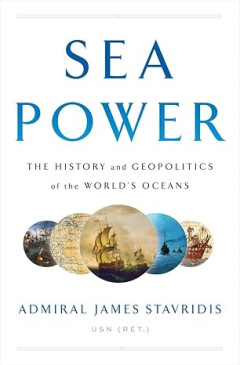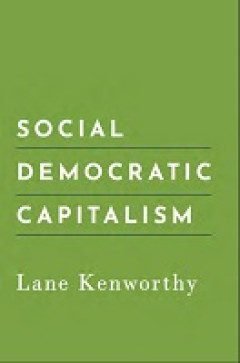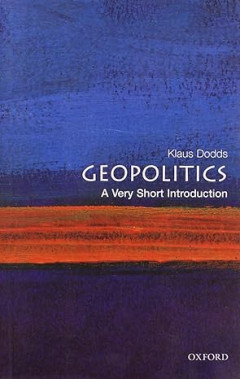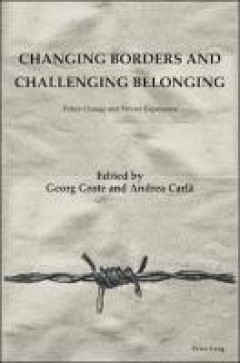Ditapis dengan
E-book Dams, Power, and the Politics of Ethiopia's Renaissance
Fifteen years to the day after making this statement, on 2 April 2011, MelesZenawi laid the foundation stone for what would become the Grand EthiopianRenaissance Dam (GERD), domestically funded and, at 5,150 megawatts (MW)of installed capacity and 74 billion cubic metres of water storage, one of the largestdams in the world. As Turkey had unilaterally built a series of dams upstream onthe trans…
- Edisi
- -
- ISBN/ISSN
- 9780192871213
- Deskripsi Fisik
- 337 hlm
- Judul Seri
- -
- No. Panggil
- 320.12 LAV d

E-book Sea Power: The History and Geopolitics of the World's Oceans
From one of the most admired admirals of his generation—and the only admiral to serve as Supreme Allied Commander at NATO—comes a remarkable voyage through all of the world’s most important bodies of water, providing the story of naval power as a driver of human history and a crucial element in our current geopolitical path. From the time of the Greeks and the Persians clashing in th…
- Edisi
- -
- ISBN/ISSN
- 9780735220591
- Deskripsi Fisik
- 295 halaman, ilus.
- Judul Seri
- -
- No. Panggil
- 359 STA s
E-book Greenland in Arctic Security : (De)securitization Dynamics under Clima…
As the Arctic is getting warmer, ice at sea and on land is melting. Great powers appear ready to conflict over resources appearing from under the ice. Science tells us about this climatic thaw already happening; much commentary and great power strategies want us to believe that a geopolitical freeze is inevitable. Either way, the Arctic region we have known since the end of the Cold …
- Edisi
- -
- ISBN/ISSN
- 9780472904396
- Deskripsi Fisik
- 383 hlm
- Judul Seri
- -
- No. Panggil
- 320.12 JAC g

E-book Social Democratic Capitalism
What configuration of institutions and policies is most conducive to human flourishing? The historical and comparative evidence suggests that the answer is social democratic capitalism — a democratic political system, a capitalist economy, good elementary and secondary schooling, a big welfare state, pro-employment public services, and moderate regulation of product and labor markets. Lane Ke…
- Edisi
- -
- ISBN/ISSN
- 9780190064112
- Deskripsi Fisik
- 305 halaman
- Judul Seri
- -
- No. Panggil
- 320.12 KEN s
E-book Records of Disaster : Media Infrastructures and Climate Change
In recent years, the emergent field of critical infrastructure studies has turned to interdisciplinary analysis of infrastruc-tures as complex worldmaking systems: They produce shared space and time, connect cultures and subjectivities, negotiate power relations, inequalities, or the mediation and circulation of material agency.1 Infrastructures often appear as networks of media technologies th…
- Edisi
- -
- ISBN/ISSN
- 9783957962096
- Deskripsi Fisik
- 167 hlm
- Judul Seri
- -
- No. Panggil
- 320.12 BEC r

E-book Geopolitics: A Very Short Introduction
In places such as Iraq or Lebanon, moving a few feet on either side of a territorial boundary can be a matter of life or death, dramatically highlighting the connections between geography and politics. This Very Short Introduction illuminates the concept of geopolitics, revealing how a country's location and size as well as its sovereignty and resources all affect how its people understand and …
- Edisi
- -
- ISBN/ISSN
- 9780199206582
- Deskripsi Fisik
- 201 halaman
- Judul Seri
- -
- No. Panggil
- 320.12 DOD g
E-book Russian Energy Strategy in the Asia-Pacific : Implications for Australia
Given Australia’s lack of energy security strategy, it is not surprising that the country is void of institutional knowledge and know-how of Russian foreign energy strategy. The ‘lucky country’ as it were, relies entirely on sea lines of communication to the north to supply fuel and to export Australian coal and natural gas. Australia has entered the 2020s as the world’s largest liquefi…
- Edisi
- -
- ISBN/ISSN
- 9781760463397
- Deskripsi Fisik
- 241 hlm
- Judul Seri
- -
- No. Panggil
- 320.12 BUC r

E-Book Changing Borders and Challenging Belonging
This timely and important book provides a critical look at borders and belonging. It illuminates the tensions and contradictions that often exist within the logic of legal and political mechanisms that define regional and national boundaries and the reality of the lives lived within these constructions. The resulting essays are instructive, thought-provoking and sometimes very moving exploratio…
- Edisi
- -
- ISBN/ISSN
- 9781800796652
- Deskripsi Fisik
- 290 halaman
- Judul Seri
- -
- No. Panggil
- 320.12 GRO t
E-book Mongolian Geopolitics
During a break in the COVID-19 pandemic, the foreign ministers of China, Russia, Japan and the United States boosted Mongolia into international headlines. Returning from the Shanghai Cooperation Organization meeting in Moscow, for instance, Chinese Foreign Minister Wang Yi stopped in Ulaanbaatar (15–16 September) with a message: Do not take sides with China’s competitors if Mongolia wants …
- Edisi
- -
- ISBN/ISSN
- 9789919992781
- Deskripsi Fisik
- 402 hlm
- Judul Seri
- -
- No. Panggil
- 320.12517 FES m
E-book Technical Territories : Data, Subjects, and Spaces in Infrastructural …
In Singapore, a sensor ticks rapidly upward, logging the location of individu-als connected to a mobile network. Such data will register the trace of the digitally savvy citizen, while excluding others subjects such as the migrant or the elderly. In doing so, it constructs a very particular understanding of national territory.In Hong Kong, a protestor dons a gas mask, …
- Edisi
- -
- ISBN/ISSN
- 9780472903375
- Deskripsi Fisik
- 193 hlm
- Judul Seri
- -
- No. Panggil
- 320.12 MUN t
E-book Polar Cousins : Comparing Antarctic and Arctic Geostrategic Futures
The world’s polar regions are now central to geopolitical and strategic com-petition. Spillover effects from rapid political, social, and environmental change present unprecedented challenges for governance, environmental protection, and maritime operations in the Arctic and Antarctic regions. Both geographic areas can be distinguished by specific terms—namely, the “Arctic” and…
- Edisi
- -
- ISBN/ISSN
- 19252919
- Deskripsi Fisik
- 282 hlm
- Judul Seri
- -
- No. Panggil
- 320.12 BRA p
 Karya Umum
Karya Umum  Filsafat
Filsafat  Agama
Agama  Ilmu-ilmu Sosial
Ilmu-ilmu Sosial  Bahasa
Bahasa  Ilmu-ilmu Murni
Ilmu-ilmu Murni  Ilmu-ilmu Terapan
Ilmu-ilmu Terapan  Kesenian, Hiburan, dan Olahraga
Kesenian, Hiburan, dan Olahraga  Kesusastraan
Kesusastraan  Geografi dan Sejarah
Geografi dan Sejarah